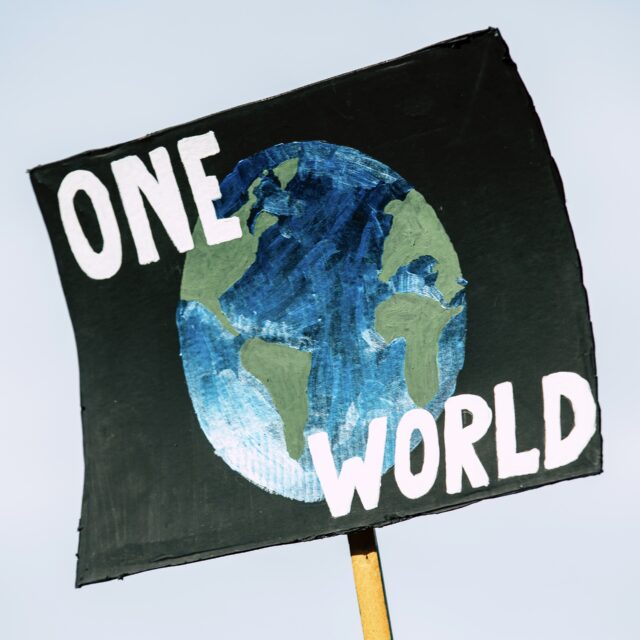Activists gather virtually for the International AIDS Conference, Sudan bans female genital mutilation, and the latest US funding bill fails to deliver global COVID-19 response funds.
Here are six stories you might have missed this month.
COVID-19 could wipe out equality gains for women at work
The COVID-19 pandemic could wipe out “the modest progress” made on gender equality in the workplace, warns the International Labour Organization (ILO). The drop in global working hours is “significantly worse than previously estimated” earlier this year. Globally, women have been disproportionately affected by the economic downturn caused by COVID-19 and are at greater risk of losing their jobs. This contrasts with previous economic downturns — when men’s employment was at greater risk — given COVID-19’s impact on the service sector. About 40% of all employed women — or almost 510 million women — work in the hardest hit industries, such as food and accommodation, retail, and real estate. The unequal distribution of unpaid care work has also worsened with the closure of schools and care services.
Activists gathered virtually for the International AIDS Conference
Earlier this month, activists and leaders gathered virtually for the biennial International AIDS Conference — which was originally set to be hosted in San Francisco, 30 years after the city first hosted the event. The conference focused on how COVID-19 is impacting the HIV-AIDS crisis, with interruptions in health services and treatments. UNAIDS predicts that a six-month complete disruption in HIV treatment could lead to more than 500,000 additional deaths from AIDS-related illnesses, nearly doubling the annual deaths. Here are some crucial facts to know about the HIV/AIDS epidemic — including COVID-19’s impact — and here’s where the movement might go next.
Sudan bans female genital mutilation
On 10 July, Sudan ratified a law criminalising female genital mutilation (FGM), along with other measures to strengthened women’s rights. Those who carry out FGM, including doctors or health workers, will now face up to three years in prison, and hospitals or other health centers where operations occur will be shut down. According to the UN, nearly nine out of 10 girls in Sudan fall victim to FGM. In another move to strengthen women’s legal rights in the country, women in Sudan will also no longer need a permit from male family members to travel with their children.
Malawi enlists mentors and counselors to keep girls in school amid the pandemic
With schools closed during COVID-19, many fear that girls will not return to the classroom, and instead will marry in order to help their families economically. In Malawi, the Ministry of Education is using mentors and counselors to keep in touch with high-school-aged girls and encourage them to remain committed to their education and help them deal with challenges. Over the past few decades, Malawi has prioritized getting girls in school, and has made great progress. From 2006 to 2018, the country nearly doubled the number of girls in high school, and current data shows equal numbers of girls and boys in high school. But Malawi also has one of the highest rates of child marriage in the world, with more than 40% of girls marrying before they turn 18, and often dropping out of school after they wed. NPR’s Goats and Soda checks in on efforts to keep girls in school.
Latest US bill falls short on global COVID-19 relief funds
The latest COVID-19 funding bill from the US Senate includes only US$4.4 billion for global COVID-19 relief — falling far short of the US$20 billion that global advocates had pushed for. Advocates had been hopeful that the Senate bill would include higher funding after a bipartisan group of 33 senators sent a letter to Senate leadership expressing that they “strongly support significant U.S. investment in the international response.” Global faith leaders from all 50 states also joined calls for a global response in a letter saying, “now it is time to show how hope and healing on the other side of the world can make Americans more secure – as well as express the enduring values of our country.”
AfDB President Akinwumi Adesina cleared of wrongdoing charges
An independent review cleared African Development Bank President Akinwumi Adesina of ethical wrongdoing, following a seven-month controversy at Africa’s largest multilateral bank. In January, a group of whistleblowers alleged that Adesina engaged in corrupt acts and ethical misconduct, including awarding contracts to acquittances and appointing relatives to key positions. The bank’s Ethics Committee of the Board of Directors described the charges as “frivolous and without merit” in March, and an independent review panel this week concurred with those findings. The findings clear Adesina’s name, and the way to his re-election to a second term as AfDB president. He is running unopposed for the August election.



